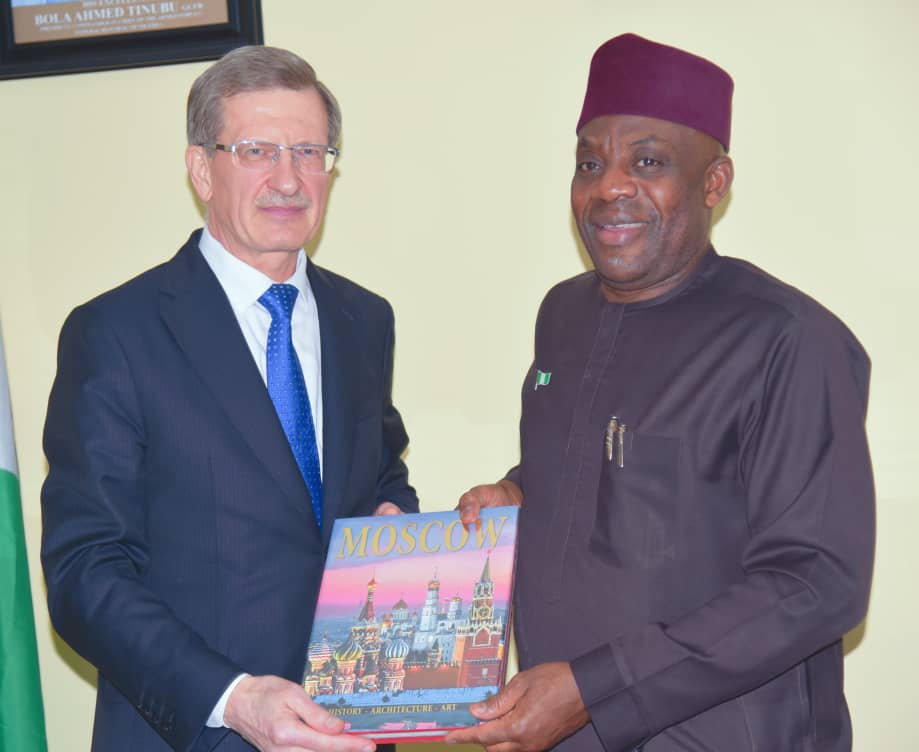The Federal Ministry of Education has reaffirmed Nigeria’s commitment to sustaining and expanding its long-standing educational and cultural partnership with the Russian Federation, despite economic challenges affecting the sponsorship of Nigerian students abroad.
At a high-level meeting in Abuja between the Honourable Minister of Education, Dr. Tunji Alausa, and the Russian Ambassador to Nigeria, H.E. Mr. Nikolay N. Udovichenko, both parties reviewed the current status of Nigeria–Russia educational ties and explored new areas for collaboration.
Dr. Alausa acknowledged Russia’s decades of support in developing Nigeria’s human capacity in critical sectors such as medicine, engineering, and technology. As of October 2024, over 2,186 Nigerian students were studying in Russia, with many pursuing healthcare-related programmes.
However, he explained that recent economic realities—including currency depreciation, subsidy reforms, and reduced government revenue—have compelled the Federal Government to suspend its financial contributions to bilateral scholarship schemes, including those with Russia.
“We cannot continue to send students 10,000 miles away without the resources to support them,” Dr. Alausa said. “We welcome Russia’s support, but Nigerian students going forward must have full sponsorship—whether from Russia, state governments, or private organizations.”
He clarified that the programme had not been cancelled but that costs such as stipends, accommodation, healthcare, and travel would no longer be borne by the Federal Government.
Ambassador Udovichenko noted that while Nigeria was allocated 250 scholarships for the 2024–25 academic year, only 199 students were enrolled.
He reaffirmed Russia’s readiness to increase Nigeria’s scholarship quota but underscored the need for firm financial guarantees for students.
The Ambassador disclosed that some state governments—including Niger and Abia States—had already pledged to fund their students’ travel, insurance, and monthly stipends of at least $500 under the Russian scholarship framework.

“We are confident in the value of Russian education,” he stated. “We are ready to work with Nigerian state governments, private institutions, and the Federal Ministry of Education to ensure that every admitted student has full financial support.”
Both sides agreed to strengthen coordination by designating a dedicated contact person or department in the Ministry to manage scholarship and sponsorship matters.
They also discussed proposals for expanding cultural exchange programmes, introducing Russian language studies in Nigerian institutions, including Nigerian universities in the Russian–African University Network, and offering Nigerian students access to specialised institutions such as the Russian Institute for Theatrical Arts.
Dr. Alausa pledged to fast-track the renewal of Nigeria–Russia cultural exchange agreements, last signed in 1970, and to share information on Russian opportunities with Nigerian universities.
The meeting concluded on a positive note, with both countries reaffirming their commitment to stronger educational and cultural ties.
The Federal Government reiterated its willingness to facilitate exchanges at no direct cost to the national treasury, while Russia expressed readiness to support Nigeria through expanded scholarship opportunities and partnerships with alternative sponsors.





